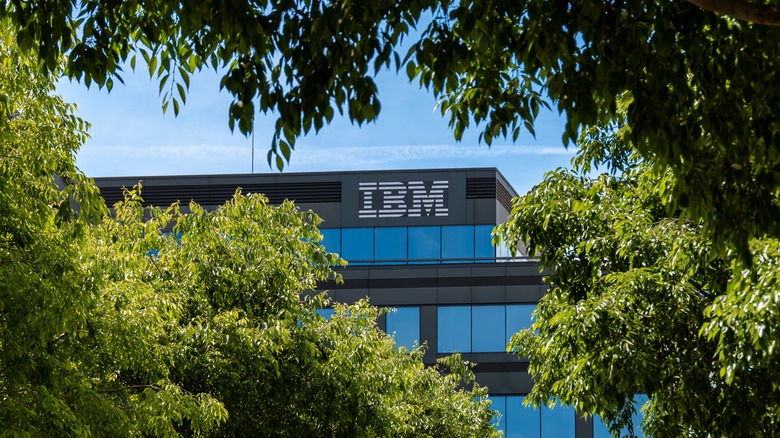IBM Tried To Replace Its Workforce With AI But Hired More People Instead
AI is advancing rapidly, and there are many discussions about how it will affect the general workforce. It may or may not replace traditionally human-owned positions, but there are already signs of it happening. While nearly all companies invest in AI to some degree, reports indicate that a mere one percent believe the technology is at maturity. In other words, it's not ready for primetime. However, a recent experience IBM had might prove otherwise. The company laid off over 8,000 employees, who it considered redundant, and replaced them with artificial intelligence automation.
Only, IBM discovered the human element was necessary, after all, albeit in different high-growth sectors. Arvind Krishna, IBM's chief executive, told the Wall Street Journal that the company actually increased its total employment after the initial reductions. On the surface, it might seem like a win for those opposed to AI, but you need to pay attention to why more people were hired. The AI helped automate certain operations, and it was successful, but that also freed up other resources for parts of the company that needed human expertise.
It deployed AskHR, an AI-powered conversational agent for administrative tasks, which helped automate 94% of its related work duties and resulted in a $3.5 billion productivity boost. But that also created demand for specialized roles like software engineers and marketing specialists. The corporate speak is that "strategic redeployment" allows companies like IBM to create new employment opportunities. That could be good or bad news, depending on your viewpoints and whether you're affected by lay-offs. AI is creeping into everything these days, and it's not comforting, especially since we know most of the internet is written by AI at this point.
Does this reveal anything about the future of workforce AI?
AI does have the potential to improve lives. There are more than a few things it can do you'll be thrilled you never have to do manually, again. Modern AI systems can also do several things beyond just talking, chatbot-style. It can help plan workouts, plan vacations, create websites, assist with coding, generate creative content, and analyze transcripts and documents. That also highlights why it's suitable for companies like IBM to automate various administrative tasks, like spearheading vacation requests, payroll processing or document management.
However, the more sinister side is that no one has really stopped to think about what's going to happen to those displaced by these technologies, at least not in a meaningful way. The World Economic Forum predicts that 92 million jobs could go away by 2030 because of AI. The footnote is that it may generate up to 170 million new jobs, much like what IBM has experienced. But for those displaced, do they simply step away for good? Do they retrain in a new field? Will they be able to find work after going through those motions?
Automation can save a lot of time and a lot of money, obviously, but the corporate world doesn't seem concerned with the human cost. With companies like IBM laying off thousands — Microsoft laid off 9,000, Amazon ousted 14,000, Accenture about 11,000 — it might be time to seriously consider the future of this displacement.

